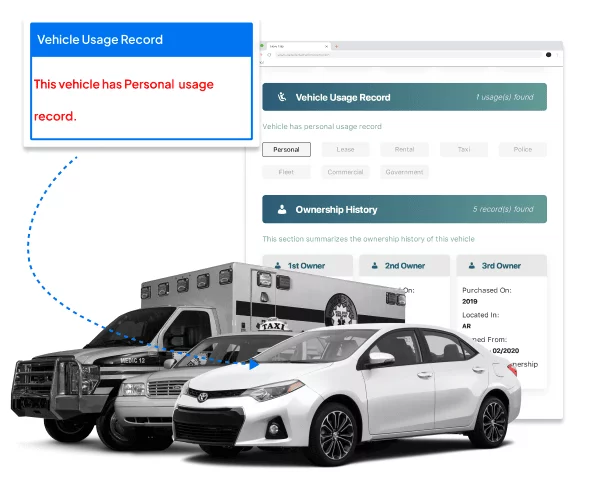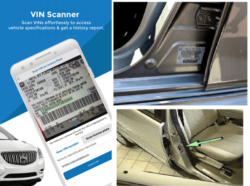Germany, renowned for its engineering prowess and love for automobiles, has increasingly embraced US car imports in recent years. If you’re contemplating bringing a piece of American automotive excellence to the roads of Germany, you’re in the right place. In this comprehensive guide, we’ll understand every necessary information on US car imports in Germany. From understanding the ins and outs of the import process to exploring Detailed Vehicle History, a detailed and concise Carfax alternative, and the growing trend of electric vehicles, we’ve got all the information you need.

Why Should I Import US Cars to Germany?
Importing US cars into Germany offers a host of advantages that make it a compelling choice for automotive enthusiasts and businesses alike. Firstly, the vast diversity of American vehicles ensures there’s something for everyone, from high-performance sports cars to practical SUVs and trucks. This variety means you can find a vehicle tailored to your specific needs and preferences, often at competitive prices compared to the local market. Furthermore, the United States produces unique and iconic models, some of which may not be readily available in Germany. If you’ve ever dreamed of owning a particular American car, importing it can turn that dream into a reality.
Additionally, US cars are renowned for their advanced technology, safety features, and innovative amenities. Importing one of these vehicles means you can enjoy cutting-edge automotive technology that enhances your driving experience. Moreover, the American car culture includes a vibrant scene for classic and collectible cars, making it an appealing option for enthusiasts looking to restore or collect vintage automobiles. Whether for personal use or business opportunities, US car imports in Germany offer access to a world of automotive possibilities, combining uniqueness, affordability, and advanced technology that can enhance your automotive journey.
Now, let’s take a look at the process of US car imports in Germany.
Importing US Cars to Germany: Everything You Need To Know
Importing US cars into Germany involves a well-defined process that requires careful planning and adherence to specific regulations. Here, we’ll unveil the step-by-step procedure to guide you through the importation process:
Step 1: Vehicle Selection
Begin by selecting the US car you wish to import. Consider factors such as the make, model, year, and features that best suit your needs and preferences. Ensure the chosen vehicle complies with German safety and emissions standards.
Step 2: Vehicle Modification
Depending on the vehicle’s origin and specifications, modifications may be necessary to bring it in line with German regulations. This could include adjustments to lighting, emissions systems, and other components to meet local standards.
Step 3: Import Declaration
Prepare and submit the required documentation for customs clearance. This includes the Bill of Lading, commercial invoice, proof of ownership, and proof of compliance with German regulations.
Step 4: Import Duties and Taxes
Pay the relevant import duties and taxes, which vary based on the vehicle type, value, and other factors. Familiarize yourself with the applicable taxes and fees to calculate the total cost of importing the vehicle.
Step 5: Vehicle Transport and Delivery:
Arrange for the transportation of the vehicle to Germany. Choose a reliable shipping method such as sea freight. Ensure the vehicle reaches the designated port for customs clearance.
Step 6: Customs Inspection and Approval:
Upon arrival in Germany, the vehicle undergoes customs inspection to verify compliance with regulations. If all requirements are met, the customs authorities grant approval for entry.
Step 7: Registration and Homologation:
Register the imported vehicle with the German authorities and obtain the necessary vehicle documents. Homologate the vehicle, which involves further checks to ensure it meets German safety and environmental standards.
Step 8: Post-Importation Compliance:
After importing the vehicle, ensure continuous compliance with German regulations, such as periodic inspections and adherence to maintenance and safety standards.
Navigating these steps with attention to detail and compliance is essential to successfully import a US car into Germany. It ensures that the imported vehicle meets German requirements and can be legally driven on German roads.
Detailed Vehicle History: Car Accident Reports and Carfax Alternatives
Understanding the history of a US car before importing it into Germany is paramount to making an informed purchase. Detailed Vehicle History reports, including car accident reports, play a crucial role in this process. These reports provide a comprehensive account of a vehicle’s involvement in accidents, collisions, and damages. With a Car Accident Report from Detailed Vehicle History you can discover the extent of damage on any vehicle, repairs conducted, and whether the car was declared a total loss by insurance companies. When importing a US car into Germany, obtaining a car accident report is essential for several reasons:

- Transparency: Car accident reports offer transparency about the vehicle’s past, helping you assess its condition accurately. You can identify potential red flags that might affect the car’s safety, performance, or value.
- Risk Assessment: By uncovering any hidden accident history, these reports assist in risk assessment. You can make an informed decision about whether the vehicle is a sound investment or if there are underlying issues that need attention.
- Negotiation Tool: Armed with a car accident report, you have a powerful negotiation tool when dealing with sellers. You can use the report’s findings to negotiate a fair price or request repairs if necessary.
Get a comprehensive vehicle history report and make an informed decision today!
Frequently Asked Questions
Importing US cars into Germany involves several steps, including vehicle selection, compliance with German regulations, customs clearance, payment of import duties and taxes, transportation, customs inspection, registration, and ongoing compliance with local standards.
Importing US cars to Germany offers access to a wide variety of vehicles, unique models, competitive prices, advanced technology, and collectible classics. It allows you to find a vehicle that suits your preferences and needs.
Yes, German regulations and safety standards apply to imported US cars. These standards include emissions requirements, safety features, and modifications to meet German specifications.
A car accident report provides valuable insights into a vehicle’s past, including accident history, damage extent, and repairs. It helps assess the vehicle’s condition, identify potential issues, and make informed decisions.








